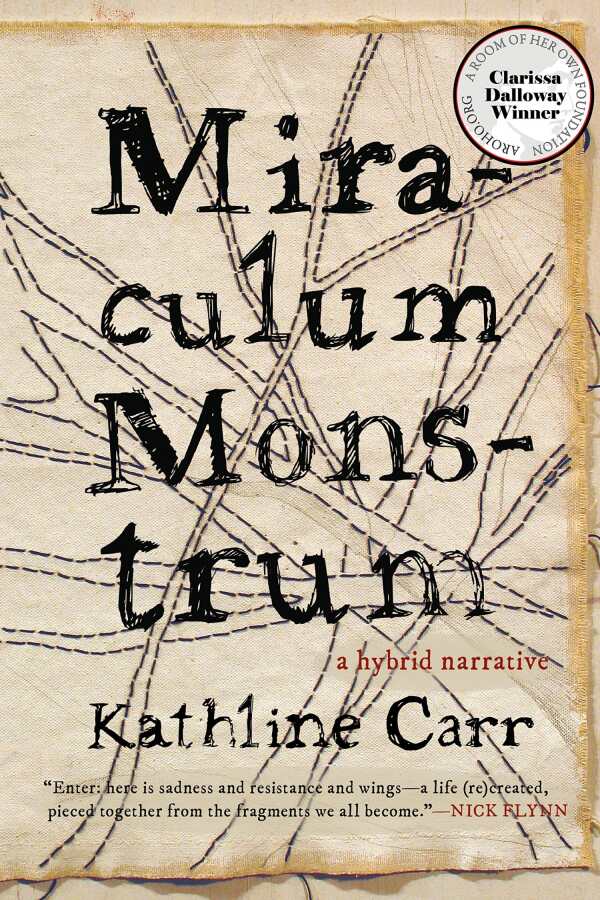Miraculum Monstrum
A Hybrid Narrative
Haunting and eerie, Miraculum Monstrum is a fun-house mirror where past, present, and future bounce off one another.
Kathline Carr’s feminist fairy tale Miraculum Monstrum is arresting, ominous, and dialectic, equal parts an emergent mythology, a damning treatise, and a horror story.
Set in an apocalyptic near future, the book catalogues the transformation of Tristia Vogel from a woman to a “latter hybrid,” a harpy-like creature both fragile and primal, able to survive an imminent ecological tragedy. The hybrid narrative uses art, poetry, narration, museum curating, and apocryphal texts to examine the constraint and construction of women.
It is particularly interested in the spaces of the dispossessed, from Tristia’s closed medical wards to her drug-addict and hooker companions’ hovels and underpasses. Tristia’s miraculous, monstrous transformation allows her to escape and exist, however briefly, in a hostile environment where she’s free and ultimately alone.
Tristia is deified in her dehumanization. As she rapidly loses her human appearance, there’s a parallel degeneration in the treatment she receives at the hands of empowered human beings, and she emerges as a messianic figure for outcasts.
As humans lose the surface and submerge themselves deep underground, Tristia gains her freedom. But as each party trades sun for shadows, freedom for constraint, the dire price suggests that there’s a toxic force in these binaries.
Sadly, as the first recorded latter hybrid, Tristia seems to have little to no sense of the importance of what is happening to her. Her time and space is liminal, the event horizon for a future to come, and her messianic hagiography is the result of posterity.
The book’s presentation of her life as retrospective art show continues its play with social constructs, indicating just how much our bodies, our environments, our histories, and our very selves are creations informed and limited by forces that are deeply personal, even when they’re often beyond our understanding or control.
Haunting and eerie, Carr’s hybrid narrative offers a daring, prescient frame. Miraculum Monstrum is a fun-house mirror where past, present, and future bounce off one another, but the dangerous work of constructing meaning is left for reflection just beyond the page.
Reviewed by
Letitia Montgomery-Rodgers
Disclosure: This article is not an endorsement, but a review. The publisher of this book provided free copies of the book to have their book reviewed by a professional reviewer. No fee was paid by the publisher for this review. Foreword Reviews only recommends books that we love. Foreword Magazine, Inc. is disclosing this in accordance with the Federal Trade Commission’s 16 CFR, Part 255.

